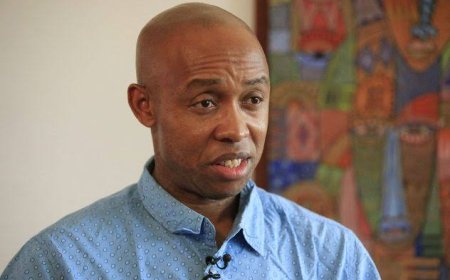Borrowing and the Nigerian Narrative: Between Strategy and Sensationalism
I was interviewed on 5th September 2025 on AIT, and the interviewer asked me why the government is borrowing when President Bola Ahmed Tinubu has stated that the country has met its revenue target for 2025.

By Chief Okoi Obono-Obla
I was interviewed on 5th September 2025 on AIT, and the interviewer asked me why the government is borrowing when President Bola Ahmed Tinubu has stated that the country has met its revenue target for 2025.
I responded by saying that borrowing is not inherently a bad thing. In fact, some of the wealthiest countries in the world—such as the United States of America, the United Kingdom, Singapore, Sweden, and Japan—borrow regularly. The USA is the largest borrower in the world.
Here are some of the countries with the highest debt levels:
Top Countries by Total Debt:
- United States: $25.798 trillion (88.45% of GDP)
- United Kingdom: $10.528 trillion (293.48% of GDP)
- France: $8.195 trillion (249.57% of GDP)
- Germany: $7.117 trillion (144.60% of GDP)
- Japan: $4.312 trillion (105.59% of GDP)
Countries with the Highest Debt-to-GDP Ratio:
- Sudan: 252% (due to prolonged conflict and economic challenges)
- Japan: 234.9% (resulting from high government spending and an aging population)
- Singapore: 174.9%
- Greece: 142.2% (stemming from economic crisis and high public spending)
- Bahrain: 141.4%
Countries Most Indebted to the IMF:
- Argentina: $32 billion (5.3% of GDP)
- Egypt: $11 billion (3.1% of GDP)
- Ukraine: $9 billion (4.7% of GDP)
- Pakistan: $7 billion (1.8% of GDP)
- Ecuador: $6 billion (4.9% of GDP)
But Nigeria is one of a kind—we politicize, demonize, dramatize, and weaponize everything to fight dirty.
When I read the screeching headlines yesterday claiming that the Speaker of the House of Representatives, Hon. Tajudeen Abbas, condemned President Bola Ahmed Tinubu for borrowing and described Nigeria’s borrowing as excessive and alarming, something told me it was fake news—an orchestrated narrative by purveyors of propaganda and misinformation targeted at the country. Thankfully, Rt. Hon. Tajudeen Abbas has refuted the false statement attributed to him.
Everything in life has both positives and negatives. Even the food we eat to sustain ourselves and the medicines we take to cure ailments can have side effects. Therefore, borrowing can be both good and bad.
The Positives of Borrowing Include:
- Financing critical infrastructure projects such as roads, bridges, and public transportation, which stimulate economic growth and improve living standards.
- Stimulating economic recovery during periods of recession or downturn.
- Supporting investments in education, healthcare, and social welfare programs, thereby enhancing human capital and promoting development.
Negative Consequences Include:
- Debt burden: High levels of debt can strain the economy and limit investment in essential public services.
- Interest payments: Large debt obligations can lead to substantial interest payments, diverting funds from critical expenditures.
- Credit rating downgrade: Excessive borrowing can reduce investor confidence and increase borrowing costs.
- Inflation and currency devaluation: Uncontrolled borrowing may lead to inflation and reduced purchasing power.
- Dependence on foreign capital: Over-reliance on external borrowing makes a country vulnerable to global market fluctuations.
Key Considerations Moving Forward:
- Sustainable borrowing
- Transparent governance
- Economic diversification
In conclusion, borrowing by a country can be beneficial if managed prudently and directed toward strategic investments. However, excessive and poorly managed borrowing can expose the economy to serious vulnerabilities.
What's Your Reaction?




































































